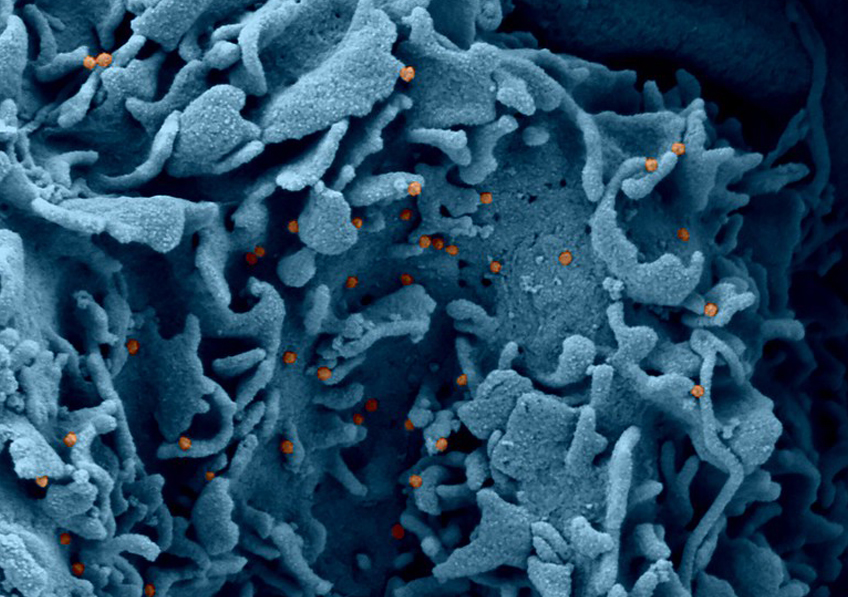Publication of the CIRI in the journal Science Translational Medicine on March 15, 2023. Press realease of the INSERM on March 17, 2023.
A large proportion of the population has developed immunity to SARS-CoV-2 following infection and/or vaccination. In addition, some infected patients benefit from a so-called "hybrid" immunity when they have been vaccinated after their infectious episode. Scientists from Inserm, CNRS, Claude Bernard Lyon 1 University and ENS de Lyon within the "Centre international de recherche en infectiologie" (CIRI), are trying to characterize the imprint left by exposure to SARS-CoV-2, by vaccination or by the combination of both events on the immune memory. The objective? To better understand the mechanisms of the immune response to the virus in order to improve patient management and optimize vaccine strategies. In a new study, scientists compared the immune memory of convalescent individuals, vaccinated or not against SARS-CoV-2, with that induced by vaccination in vaccinated individuals never infected by SARS-CoV-2. Their results show that individuals vaccinated after infection are best protected from reinfection with SARS-CoV-2. The full article is published in the journal Science Translational Medicine.
Abstract
The diversity of vaccination modalities and infection history are both variables that have an impact on the immune memory of individuals vaccinated against SARS-CoV-2. To gain more accurate knowledge of how these parameters imprint on immune memory, we conducted a long-term follow-up of SARS-CoV-2 spike protein–specific immune memory in unvaccinated and vaccinated COVID-19 convalescent individuals as well as in infection-naïve vaccinated individuals. Here, we report that individuals from the convalescent vaccinated (hybrid immunity) group have the highest concentrations of spike protein–specific antibodies at 6 months after vaccination. As compared with infection-naïve vaccinated individuals, they also display increased frequencies of an atypical mucosa-targeted memory B cell subset. These individuals also exhibited enhanced TH1 polarization of their SARS-CoV-2 spike protein–specific follicular T helper cell pool. Together, our data suggest that prior SARS-CoV-2 infection increases the titers of SARS-CoV-2 spike protein–specific antibody responses elicited by subsequent vaccination and induces modifications in the composition of the spike protein–specific memory B cell pool that are compatible with enhanced functional protection at mucosal sites.

Philippe Roingeard, Anne Bull-Maurer, Sonia Georgeault/Inserm.CC-BY-NC 4.0 international license
Reference: Prior SARS-CoV-2 infection enhances and reshapes spike protein–specific memory induced by vaccination. Veronique Barateau, Loic Peyrot, Carla Saade, Bruno Pozzetto, Karen Brengel-Pesce, Mad-Helenie Elsensohn, Omran Allatif, Nicolas Guibert, Christelle Compagnon, Natacha Mariano, Julie Chaix, Sophia Djebali, Jean-Baptiste Fassier, Bruno Lina, Katia Lefsihane, Maxime Espi, Olivier Thaunat, Jacqueline Marvel, Manuel Rosa-Calatrava, Andres Pizzorno, Delphine Maucort-Boulch, Laetitia Henaff, Mitra Saadatian-Elahi, Philippe Vanhems, Stéphane Paul, Thierry Walzer, Sophie Trouillet-Assant, Thierry Defrance. Science Translational Medicine, March 15, 2023.
DOI : 10.1126/scitranslmed.ade0550






